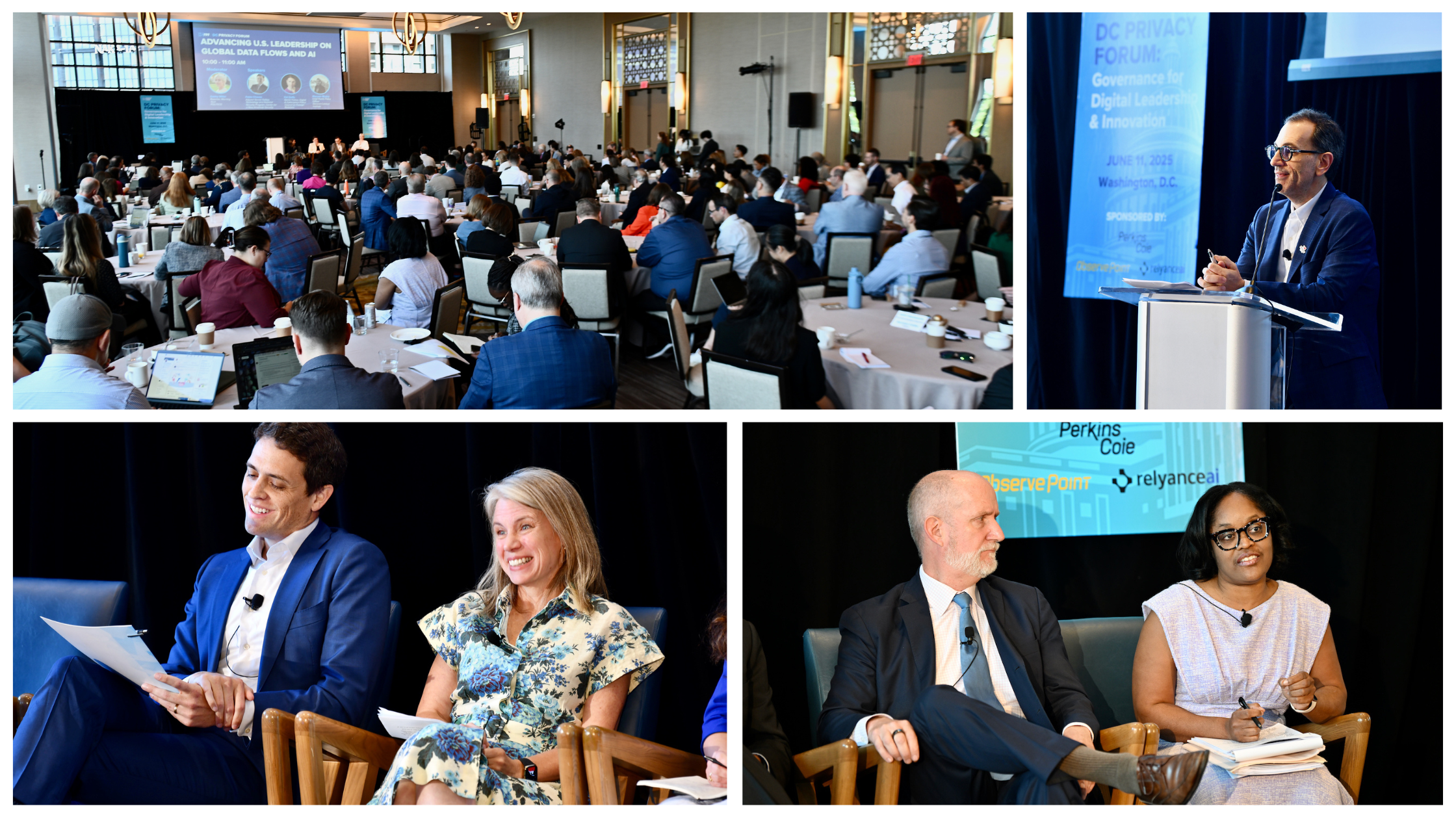Annual DC Privacy Forum: Convening Top Voices in Governance in the Digital Age
FPF hosted its second annual DC Privacy Forum: Governance for Digital Leadership and Innovation on Wednesday, June 11. Staying true to the theme, this year’s forum convened key government, civil society, academic, and corporate privacy leaders for a day of critical discussions on privacy and AI policy. Gathering an audience of over 250 leaders from […]
FPF Experts Take The Stage at the 2025 IAPP Global Privacy Summit
By FPF Communications Intern Celeste Valentino Earlier this month, FPF participated at the IAPP’s annual Global Privacy Summit (GPS) at the Convention Center in Washington, D.C. The Summit convened top privacy professionals for a week of expert workshops, engaging panel discussions, and exciting networking opportunities on issues ranging from understanding U.S. state and global privacy […]
Privacy Roundup from Summer Developer Conference Season 2024
Ahh, summer. A time for hot dogs, swimming pools, and software developer conferences. For third-party application developers to deliver new tools with the best features for the lucrative fall quarter, they must have access to all the APIs and tools by the summer before. This has meant that early summer has become known as a […]
Two New Apple and Google Platform Privacy Requirements Kicking In Now
Apple’s important mandatory requirements affecting iOS apps are about to kick in, and Google’s new requirements for publishers and advertisers have just gone into effect. Accurately implementing these requirements calls for close cooperation between the legal, privacy, and ad ops teams. Apple’s Privacy Manifests At WWDC 2023, Apple announced privacy manifests, signatures for SDKs, and […]
Examining Novel Advertising Solutions: A Proposed Risk-Utility Framework
This week, the Future of Privacy Forum released Advertising in the Age of Data Protection: Background for a Proposed Risk-Utility Framework for Novel Advertising Solutions (v 1.0), which will be open for Public Comment until May 26, 2024. The digital advertising industry is in the midst of a sea change. Around the world, privacy regulators […]
Colorado’s Approval of Global Privacy Control: Implications for Advertisers and Publishers
The privacy laws of both Colorado and California require organizations to recognize Universal Opt-Out Mechanisms (UOOMs), a tool through which a person can invoke their opt out rights broadly across all the websites they visit. While California has required responding to certain UOOMs since July 2021, the Colorado Attorney General has only recently approved their […]
Survey of Current Universal Opt-Out Mechanisms
With contributions from Aaron Massey, FPF Senior Policy Analyst and Technologist, Keir Lamont, Director for U.S. Legislation, and Tariq Yusuf, FPF Policy Intern Several technologies can help individuals configure their devices to automatically opt out of web services’ requests to sell or share personal information for targeted advertising. Seven state privacy laws require that organizations […]
“Are crumbles all that remains of the cookies?” A conversation on the future of ad tech at the Nordic Privacy Arena 2021
On September 27 and 28, 2021, the Swedish Data Protection Forum (Forum för Dataskydd) hosted the 2021 edition of the Nordic Privacy Arena (“Operationalising Data Privacy – Challenges, best practices, and success stories”) in Stockholm, Sweden. This hybrid event brought together privacy practitioners, watchdogs, and academics to debate some of the most pressing issues regarding […]
iOS Privacy Advances
Law and legislation take the lead in setting standards for protecting personal data, but the policies and norms established by companies also play a central role. This has been the case particularly for global platforms providing the services used by billions in the course of daily life. Apple’s 2020 Worldwide Developer Conference (WWDC) previewed a […]
Custom Audiences and Transparency in Online Advertising
This morning, Facebook announced that they will begin rolling out new requirements for its “Custom Audiences” targeting tool for advertisers. These updates are a useful step towards creating better user understanding of data flows both on Facebook and in the broader web, and enhancing the accountability of advertisers who use custom marketing lists.










